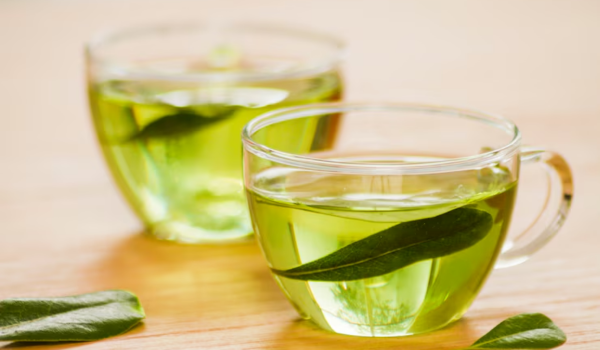Lemon Balm vs Green Tea: Which Is Better for Weight Loss?
Lemon Balm vs. Green Tea: Which Herbal Powerhouse Is Best for Weight Loss?

When it comes to natural remedies for weight management, two herbal options often come up: lemon balm and green tea.
Both have been associated with various health benefits, but how do they stack up against each other in the realm of weight loss?
In this comprehensive guide, we’ll delve into the science behind each, compare their mechanisms, and help you determine which might be more effective for your weight loss journey.
Understanding Lemon Balm
What Is Lemon Balm?
Lemon balm (Melissa officinalis) is a perennial herb in the mint family, native to Europe and Asia.
Known for its lemon-scented leaves, it has been traditionally used to alleviate stress, improve sleep, and support digestion. In recent years, its potential role in weight management has garnered attention.
How Lemon Balm May Aid Weight Loss
- Stress Reduction and Cortisol Management: Chronic stress leads to elevated cortisol levels, which can promote fat storage, especially abdominal fat. Lemon balm has been shown to reduce anxiety and improve sleep quality, indirectly supporting weight management by helping manage stress-induced eating.
- Appetite Regulation: Lemon balm may help curb the desire for high-calorie foods by promoting feelings of satiety and controlling hunger signals. This effect may be due to the herb’s ability to interact with neurotransmitters in the brain, particularly GABA (gamma-aminobutyric acid), which reduces anxiety and calms the nervous system.
- Improved Sleep Quality: Sleep is crucial for weight management. Lack of sleep can disrupt hormone levels, including those that regulate hunger, making you more likely to overeat. Research suggests that lemon balm may have mild sedative effects, helping you fall asleep faster and stay asleep longer.
- Anti-Inflammatory Effects: Lemon balm contains compounds like rosmarinic acid, which may have anti-inflammatory effects. Chronic inflammation can slow down metabolism, so reducing it might make it easier to manage your weight.
Understanding Green Tea
What Is Green Tea?
Green tea is made from the leaves of the Camellia sinensis plant and is rich in antioxidants, particularly catechins like epigallocatechin gallate (EGCG).
It has been consumed for centuries for its potential health benefits, including weight management.
How Green Tea May Aid Weight Loss
- Boosts Metabolism and Fat Oxidation: Green tea contains catechins and caffeine, which may help promote weight loss by increasing the number of calories you burn daily (energy expenditure) and boosting fat oxidation, metabolism, and thermogenesis.
- Supports Fat Burning During Exercise: Some studies suggest that green tea can enhance fat burning during exercise. A meta-analysis found that green tea supplementation significantly reduced body weight and maintained weight loss over time.
- Appetite Regulation: Green tea may help regulate appetite by influencing hormones that control hunger and satiety. This can lead to reduced calorie intake and support weight loss efforts.
Which Is Better for Weight Loss?
Green Tea: The Evidence-Based Choice
- Green tea has been extensively studied for its potential weight loss benefits.
- Research indicates that the catechins and caffeine in green tea can boost metabolism and fat oxidation, leading to modest weight loss.
- A meta-analysis found that green tea supplementation significantly reduced body weight and maintained weight loss over time.
Lemon Balm: A Complementary Support
- While lemon balm may not directly induce weight loss, it can support weight management by reducing stress, improving sleep quality, and regulating appetite.
- These indirect effects can help prevent overeating and emotional eating, contributing to healthier weight management.
Integrating Both into Your Routine
- Combining green tea and lemon balm may offer a holistic approach to weight management.
- Green tea can aid in boosting metabolism and fat burning, while lemon balm can help manage stress and improve sleep quality.
- Together, they can support a balanced and sustainable weight loss journey.

What Does the Science Say?
Scientific Studies on Lemon Balm
While lemon balm has traditionally been used for relaxation and anxiety, there’s emerging evidence suggesting a role in metabolic health:
- A 2013 animal study found that lemon balm extract reduced blood glucose levels and body weight in obese mice.
- Human trials are limited, but anecdotal evidence and traditional use support its role in stress management a crucial factor in emotional eating.
Scientific Studies on Green Tea
Green tea has a robust body of scientific support:
- A meta-analysis published in the International Journal of Obesity found that green tea catechins combined with caffeine significantly increased weight loss and helped maintain it.
- Other studies show that green tea can increase fat oxidation by up to 17% during moderate exercise.
Lemon Balm vs. Green Tea: A Comparative Analysis
| Feature | Lemon Balm | Green Tea |
| Primary Active Compounds | Rosmarinic acid, GABA | EGCG, caffeine |
| Mechanism of Action | Stress reduction, appetite regulation, improved sleep | Boosts metabolism, fat oxidation, appetite regulation |
| Scientific Evidence | Limited human studies | Extensive human studies |
| Best Time to Consume | Evening (promotes relaxation and sleep) | Morning or pre-workout (boosts energy) |
| Caffeine Content | None | Contains caffeine |
| Potential Side Effects | Sedation, digestive discomfort, interactions with medications | Caffeine-related side effects, may interfere with iron absorption |
Can You Use Both?
Absolutely! In fact, combining lemon balm and green tea strategically may offer a more balanced approach:
- Morning: Drink green tea to kickstart your metabolism and enhance fat burning throughout the day.
- Evening: Sip lemon balm tea to relax, reduce cortisol, and prepare for quality sleep supporting your weight goals overnight.

Conclusion
If your goal is purely weight loss, green tea is the clear winner. It has strong scientific backing, enhances fat oxidation, and helps maintain weight loss when used consistently alongside a healthy lifestyle.
However, lemon balm offers important supportive benefits especially if your weight challenges are tied to stress, anxiety, or poor sleep.
While it may not torch fat directly, it plays a vital role in creating the kind of balanced, low-stress lifestyle that makes sustainable weight loss possible.
Green tea leads the charge in fat loss, but don’t underestimate the supportive power of lemon balm.
Whichever path you choose, remember that no tea alone will lead to dramatic results without healthy eating, regular movement, and adequate rest. Think of these herbs as powerful allies in your larger weight loss journey not quick fixes.
.